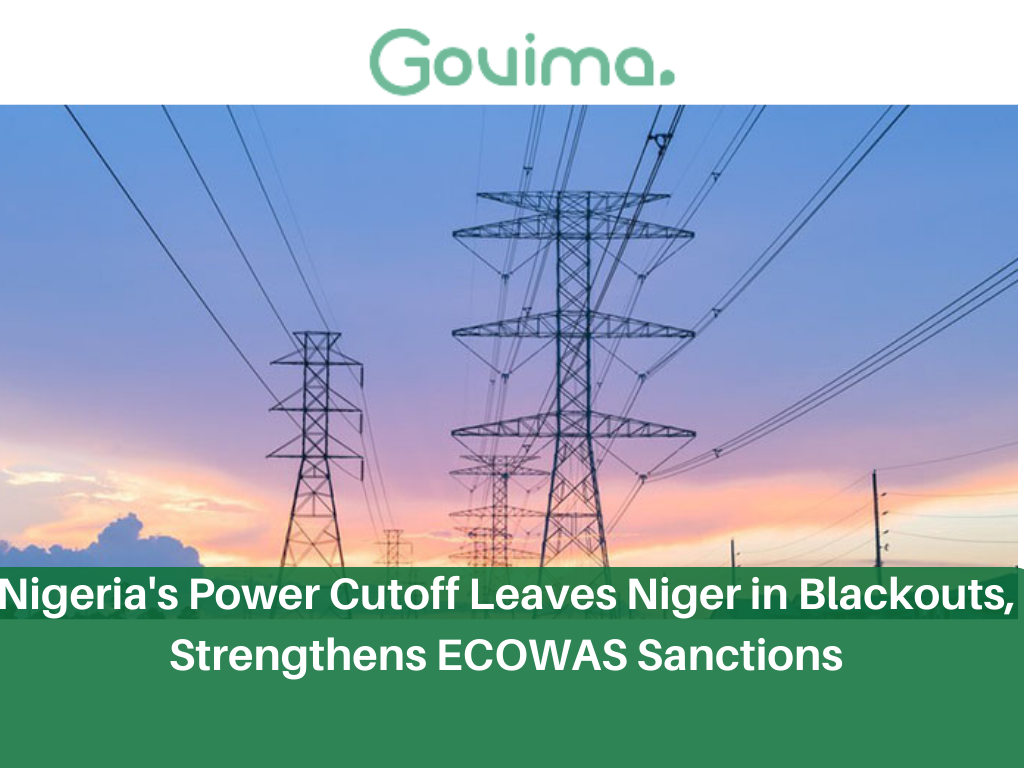Power outages like these in Niger are uncommon, however, the nation is highly reliant on Nigeria as its primary source of electricity.
According to a source close to the management of the Nigerien Electricity Company (Nigelec), Nigeria has suspended its electricity supply to Niger.
This decision comes in line with the sanctions imposed by West African neighbors of Niger in response to the coup that has destabilized the country.
“Nigeria disconnected since yesterday (Tuesday) the high voltage line that carries electricity to Niger,” the source said. AFP reports that a Nigelec agent for his part indicated that the capital, Niamey, was “supplied thanks to local production”.
GOVIMA On Sunday reports that the Economic Community of West African States (ECOWAS), led by President Bola Tinubu, decided on sanctions against the putschists who toppled President-elect Mohamed Bazoum a week ago.
In addition to a one-week ultimatum to restore constitutional order and the suspension of financial transactions with Niger, ECOWAS decreed the freezing of “all service transactions, including energy transactions”.
According to a report by Nigelec, which is the sole supplier of electricity in Niger, in the year 2022, 70% of Niger’s share of electricity came from purchases made from the Nigerian company Mainstream.
The electricity is produced by the Kainji dam located in western Nigeria. This highlights the significant reliance of Niger on its neighboring country for a substantial portion of its electricity needs. The country is part of most poorest countries in the word
Many neighborhoods in the city of Niamey are normally subject to power cuts and Nigeria’s decision will aggravate this situation.
Meanwhile, Niger is taking steps to reduce its strong energy dependence on neighboring Nigeria by completing its first dam, the Kandadji dam, by 2025. Situated on the river of the same name, approximately 180 km upstream from Niamey, the capital city of Niger, the Kandadji dam is projected to generate 629 gigawatt hours (GWh) of electricity annually.
This ambitious project aims to enhance the country’s energy self-sufficiency and reduce its reliance on external sources for power generation.
Nigerian Prime Minister Ouhoumoudou Mahamadou on Sunday while on France 24 tv described “The sanctions will hurt our country very badly,”



